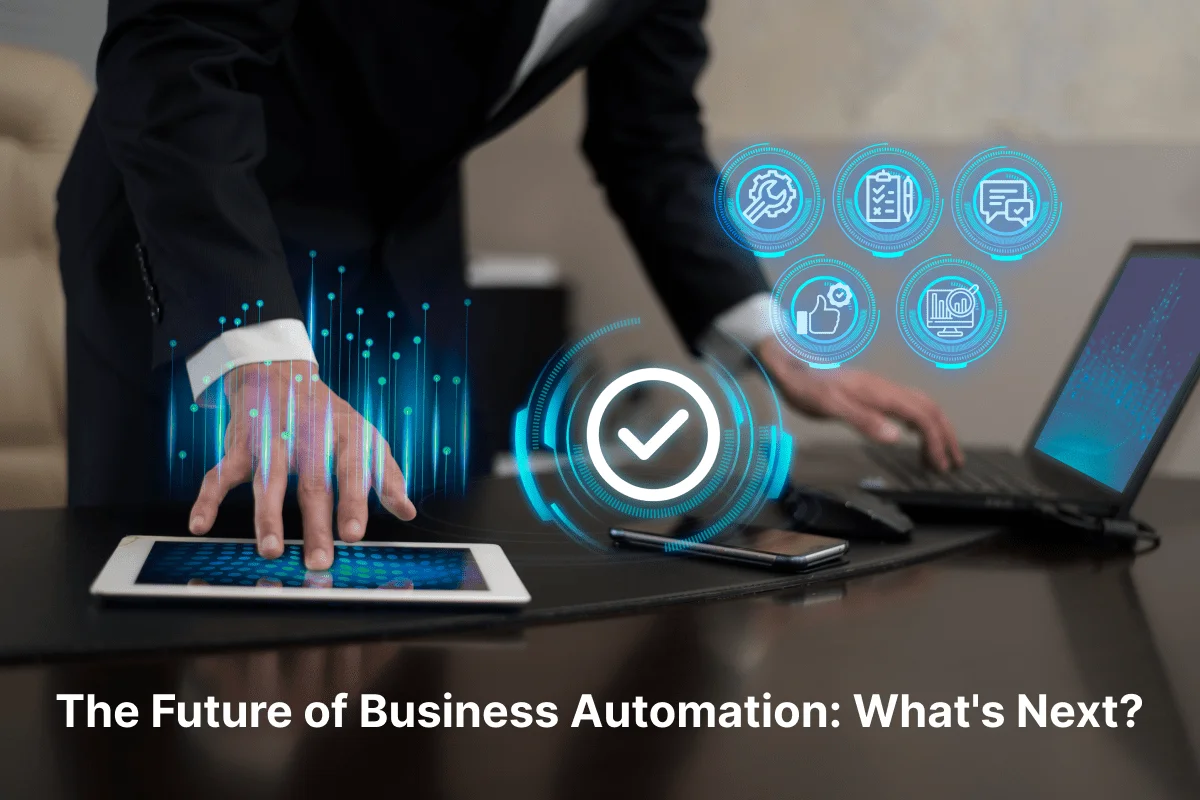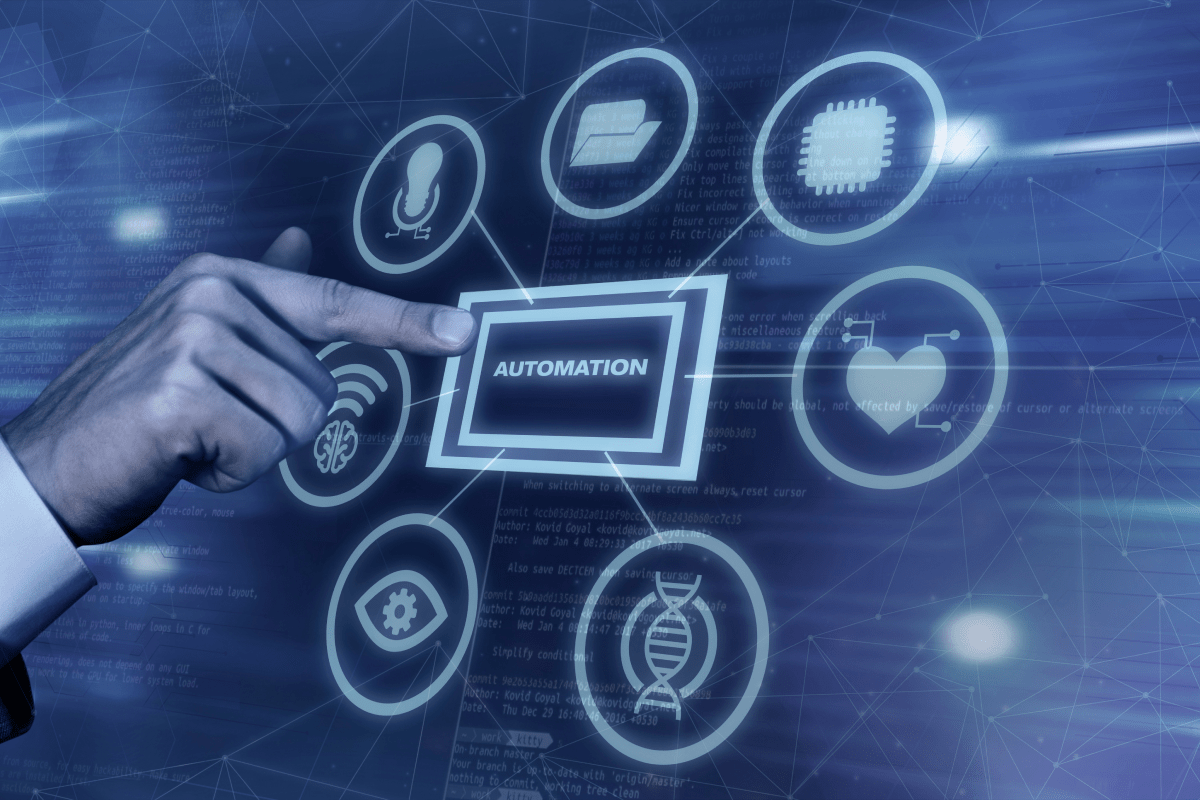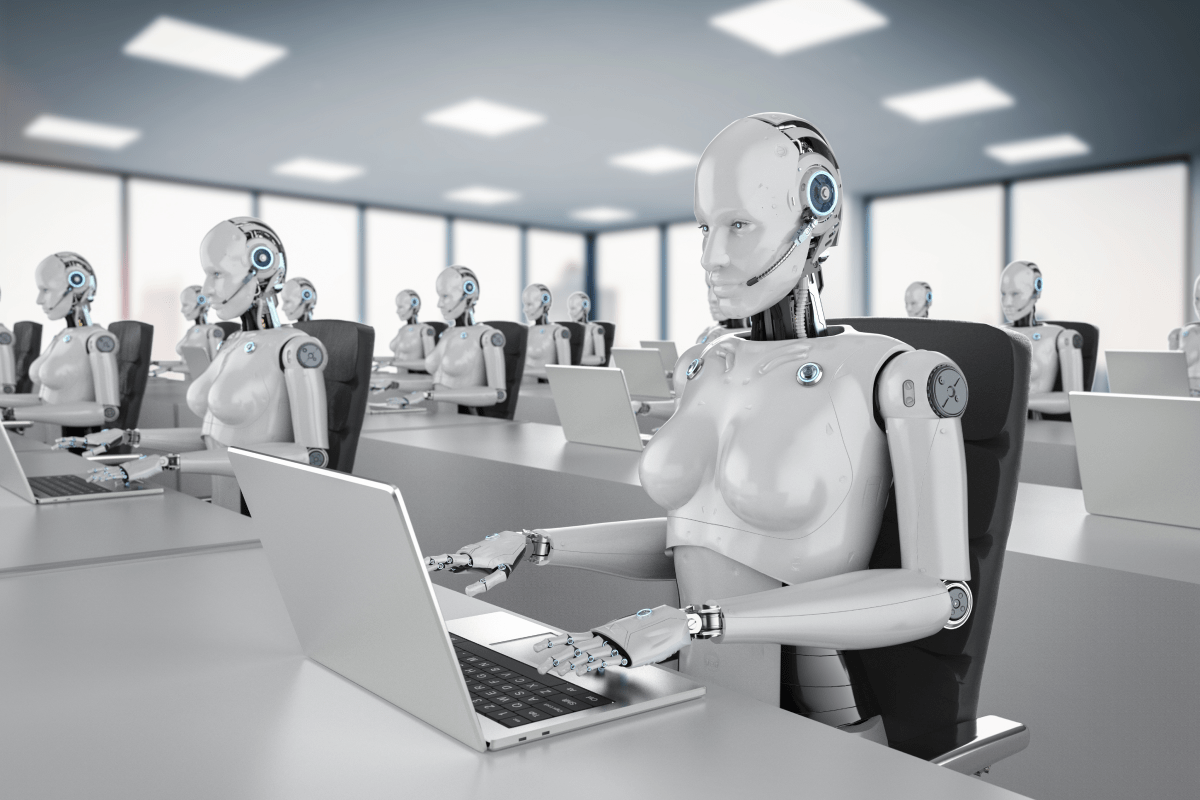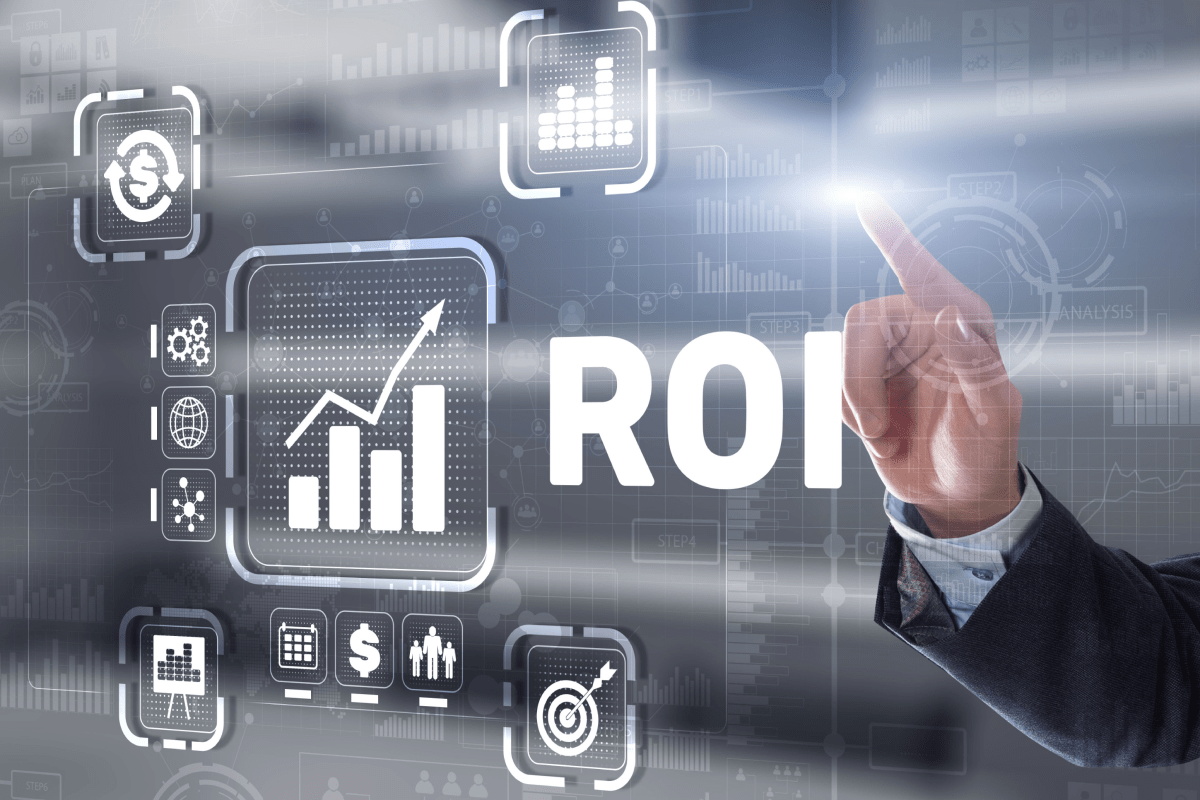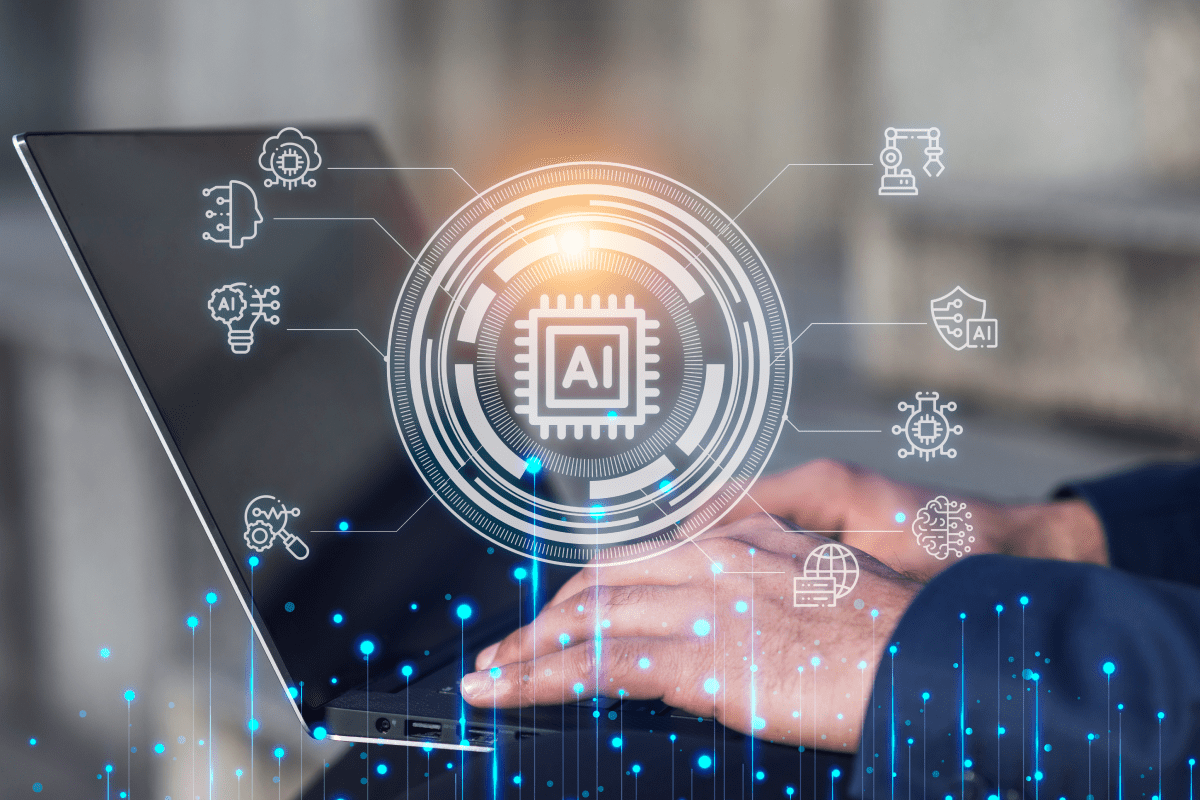In the ever-evolving landscape of business, the role of automation has become increasingly pivotal. From streamlining operations to enhancing efficiency, automation has revolutionized the way organizations function. As we stand at the cusp of a new era, it’s crucial to explore what the future holds for business automation and how it will continue to shape industries across the globe.
Current State of Business Automation
Before delving into the future, let’s take a moment to reflect on the present. Businesses are leveraging automation in various forms, ranging from basic task automation to more advanced processes driven by artificial intelligence (AI) and machine learning (ML). Routine tasks like data entry, customer support, and some aspects of decision-making have been automated to boost productivity and reduce human error.
Robotic Process Automation (RPA) has gained significant traction, allowing companies to automate repetitive, rule-based tasks. This has not only resulted in cost savings but also freed up human resources to focus on more strategic and creative aspects of their roles.
Emerging Technologies Shaping the Future
Looking ahead, several emerging technologies are poised to redefine the landscape of business automation.
Artificial Intelligence (AI) and Machine Learning (ML)
The integration of AI and ML will lead to more intelligent and adaptive automation systems. These technologies can analyze vast amounts of data to identify patterns, make predictions, and continuously improve processes. For example, in customer service, AI-powered chatbots are becoming more sophisticated in understanding and responding to user queries.
Edge Computing
As the Internet of Things (IoT) continues to grow, edge computing will play a crucial role in business automation. Edge computing processes data closer to the source, reducing latency and enabling real-time decision-making. This is particularly beneficial in sectors like manufacturing, where split-second decisions can impact efficiency and safety.
Blockchain Technology
The decentralized and secure nature of blockchain technology holds immense potential for automation in areas such as supply chain management, contract execution, and financial transactions. Smart contracts, self-executing contracts with the terms of the agreement directly written into code, can automate and streamline various business processes.
Robotic Automation with AI Integration
The next generation of robotics will not only be more sophisticated but will also incorporate AI to enhance their decision-making capabilities. This integration will result in robots that can adapt to changing environments, learn from experience, and collaborate more effectively with human counterparts.
Augmented Reality (AR) and Virtual Reality (VR)
These technologies are expected to play a significant role in training and simulations. Businesses can leverage AR and VR to create immersive training experiences for employees, allowing them to familiarize themselves with complex tasks or scenarios in a virtual environment before tackling them in the real world.
Challenges and Opportunities
While the future of business automation is promising, it comes with its own set of challenges.
Job Displacement
One major concern is the potential displacement of jobs as routine tasks become automated. However, this also opens up new opportunities for the workforce to upskill and focus on tasks that require creativity, emotional intelligence, and critical thinking—areas where machines currently struggle to excel.
Cybersecurity
Another challenge is the need for robust cybersecurity measures. As businesses increasingly rely on interconnected devices and automated systems, the risk of cyber threats and attacks becomes more pronounced. Strengthening cybersecurity infrastructure will be crucial to safeguard sensitive data and maintain the integrity of automated processes.
Adapting to Change
As businesses prepare for the future of automation, adaptability will be a critical factor. The speed at which technology is advancing requires organizations to be agile in integrating new tools and methodologies. This adaptability extends beyond technology; it also involves cultivating a culture that embraces change and encourages continuous learning.
Employee Reskilling and Upskilling
Employee reskilling and upskilling programs will become paramount. As job roles evolve with automation, providing avenues for employees to acquire new skills will be essential. Companies can establish training initiatives, partnerships with educational institutions, and mentorship programs to ensure their workforce remains relevant in an automated environment.
Enhanced Customer Experiences
One of the most significant impacts of advanced automation technologies will be on customer experiences. As AI and ML algorithms become more sophisticated, businesses will be able to offer highly personalized and anticipatory customer interactions. From predictive analytics in retail to intelligent virtual assistants in healthcare, automation will elevate customer service to new heights.
Moreover, the integration of automation with data analytics will enable businesses to gain deeper insights into customer behavior. This, in turn, will inform strategic decision-making, product development, and marketing strategies. Businesses that leverage automation to enhance customer experiences will not only foster loyalty but also gain a competitive edge in the market.
Global Connectivity and Collaboration
The future of business automation will be marked by increased global connectivity and collaboration. Cloud computing, coupled with advanced automation tools, will allow businesses to seamlessly connect and share resources across geographical boundaries. This will lead to more efficient supply chains, faster product development cycles, and improved collaboration among international teams.
Blockchain technology will play a pivotal role in facilitating secure and transparent global transactions. The decentralized nature of blockchain ensures that data is tamper-resistant, reducing the risk of fraud and enhancing trust in international business dealings. Smart contracts, powered by blockchain, will automate and streamline complex contractual agreements, making cross-border collaborations more efficient.
Sustainability and Responsible Automation
As businesses embrace automation, there is a growing awareness of the need for sustainable and responsible practices. Automation has the potential to reduce energy consumption, optimize resource utilization, and minimize waste. For instance, in manufacturing, smart automation can optimize production processes, leading to less environmental impact.
However, responsible automation goes beyond just environmental considerations. Ethical and social implications must be carefully weighed. Ensuring that automated systems are unbiased and adhere to ethical standards is crucial. Businesses must prioritize diversity and inclusivity in the development and implementation of automation technologies to avoid perpetuating existing societal biases.
The Role of Governments and Regulations
As automation continues to transform industries, governments will play a pivotal role in shaping the regulatory landscape. The development of comprehensive frameworks to address issues such as data privacy, cybersecurity, and the ethical use of AI will be imperative. Striking a balance between fostering innovation and protecting the interests of individuals and society will be a delicate yet crucial task.
Collaboration between governments, businesses, and academic institutions will be necessary to create policies that encourage the responsible adoption of automation technologies. Regulatory frameworks should be flexible enough to accommodate the rapid pace of technological advancements while ensuring that ethical standards are upheld.
Final Thoughts
The future of business automation is an unfolding narrative, rich with possibilities and challenges. While technological advancements will continue to drive innovation, it’s essential for businesses to remain mindful of the broader impact on society. By fostering a culture of adaptability, prioritizing ethical considerations, and strategically integrating automation, businesses can navigate this transformative journey successfully.
In conclusion, the future of business automation is not a distant destination but an ongoing evolution. Those who approach it with a forward-thinking mindset, emphasizing responsible practices and the well-being of both employees and society, will be best positioned to thrive in the automated landscape of tomorrow. As the fourth industrial revolution unfolds, the synergy between human ingenuity and technological prowess will define the trajectory of businesses, shaping a future where automation enhances the human experience rather than overshadowing it.
4o

